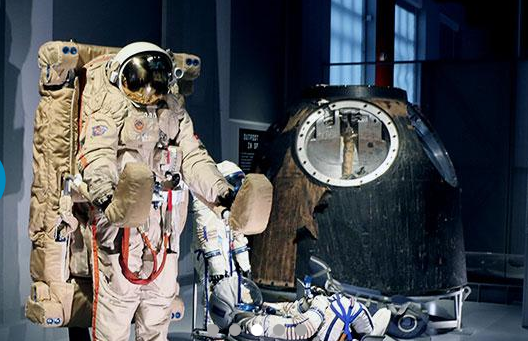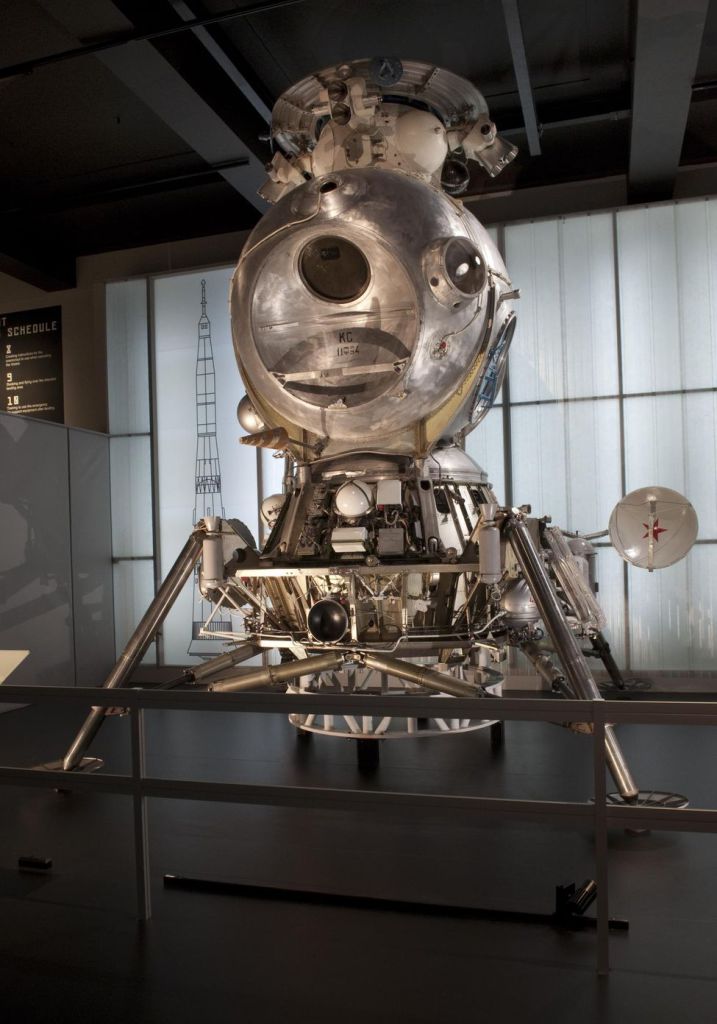
14 Nov The Russian space conquest

It was another time, when the end of the world or even the universe, was not around the corner, where the pursuit of an ideal motivated adventure, where the unknown was really limitless.
It was a time for the wildest and craziest hero. This madness and this dinguerie were so heavily concentrated in Russia, which has not necessarily changed. And these dreams in the late nineteenth and early twentieth centuries, focused in space, the cosmos.
The earthly world, especially in a Russia grappling with the Bolshevik Revolution, was in turmoil.
The sky and stars were perhaps then a haven of mind.
Uncontrollable urge
It was at that moment, in the delicate designs and incredibly Constantin Eduardovich Tsiolkovsky visionaries, that the space race was born. Deaf as a post, that Russian scientific and humanist wrote science fiction elaborated and complicated physical theories of rocket propulsion. He also dreamed of sending humans into space, and lighten the weight of the human population growing steadily. "The Earth is the cradle of humanity, but the human being can not remain in a cradle," he said.
For him, the space race was a story of optimism. Tsiolkovsky spoke of "cosmic optimism," because human culture had the ability to grow without limits in the vastness of the universe. The purpose of space exploration was primarily philosophical, it was to achieve universal happiness.
Geopolitical issues
This is the story of the conquest of space, but also of extraordinary medical and scientific advances. This is the twentieth century with its bursts, its dramas and its infinite developments. It is also the story of a tasty toothbrush forgotten on Earth, that of the Russian Valentina Tereshkova, the first woman and first civilian sent into space, since heroin for all lovers of the stars. This June 16, 1963, Tereshkova takes place aboard Vostok 6, a vessel that looks like a huge metal buoy. She is 26 years old, spent a workers in a textile factory but also enthusiastic amateur parachutist, which enabled it to be selected in the Soviet space program. Once in orbit - in two days twenty-two hours and forty-one minutes, it will make 48 times around the Earth - the young cosmonaut noticed that his toothbrush was not slipped into the capsule. "It is unfortunately a fact," she was told at the opening of the exhibition in London.
At 78 years, Dr. Tereshkova is a wonderful woman with a formidable humor and a styling that seems not to have moved since she had taken off her cosmonaut helmet. "As I'm resourceful, like all women, I had my toothpaste, I had my hand and I had water, she said. But this oversight was not as catastrophic as the error of the engineer who had scheduled my capsule on an upward and not downward program. So in principle, if I did not realize it, I would be gone for good in space. "Once the error rectified and Valentina Tereshkova returned safely to Earth, the mission chief begged to secrecy to prevent the engineer be punished. "I kept the secret thirty years, until I am noticing that the engineer in question had told the story everywhere."
Everything burned by friction of atmospheric entry, Vostok 6 is here, within the walls of Science Museum, shown to the public for the first time in London. "When I see him, I caress, I talk to him, I told him that he really is the most beautiful," simpering Valentina Tereshkova.
Caught delay
Before it, there were the bitches Laika in Sputnik 1 in 1957, Belka and Strelka and with Sputnik 5 in 1960 - the first living beings to return sound on Earth. Later, one of the bitches have puppies, one of which will be offered by Jackie Kennedy to Nikita Khrushchev, as an ironic nod to Soviet superiority - at that time - in the space race.
And then, in 1961, there will of course Yuri Gagarin in Vostok 1, the first man in space. This will be the Russians who also will launch the first rocket to the moon and Mars and will complete the first walk in space. But Americans mow the momentum and burn out of politeness to the Russians, sending with the Apollo 11 rocket, the first crew on the Moon, on the night of 20 to 21 July 1969. Stung by Russian prowess, America has invested millions of dollars to catch up. And Russian lunar spacecraft, almost ready to take the first man on the moon, will remain pitifully to the ground.
Space cans
These stories, told a thousand times, take a special raised when one looks at the space required to Laika and that above our heads floats the silver ball of a Sputnik. And one begins to think that in his song Space Oddity, David Bowie really invented nothing, that these men and women were all really floated in cans. Today, on the International Space Station, astronauts are taking real showers, eat caviar or tube fries. But continue to dream of elsewhere.
On November 26, 1988, Sergei Krikalev flew towards the space station Mir ("peace" in Russian) for its first mission. It is accompanied by French astronaut Jean-Loup Chrétien. He will return in space six times. On May 19, 1991, he goes on a mission to Mir. He should have come back after three months. It will remain almost a year in space. Meanwhile, the Soviet Union collapsed. Russia reborn on 1 January 1992. Party Soviet citizen, Sergei Krakalev will return Russian, March 25, 1992. And when asked his feelings about this monumental change earthling, he has this beautiful answer: "Our mission in space was much more stable than what was happening on Earth. And frankly, we had other fish to fry. "
A beautiful book accompanies the exhibition. In the preface, we read these words:
"The history of the conquest of the cosmos in the USSR and Russia is, first and foremost the story of a people who had enough courage, enthusiasm , will and nerve to not only realize his dream but also the previous generations: the dream of a humanity that would cross the boundaries of Planet Earth "
Signed by Elena Gagarina, the Kremlin Museum director in Moscow..
The April 12, 1961, she had two years and two months. And it is that day that her father, Yuri Gagarin conquered spaced


No Comments